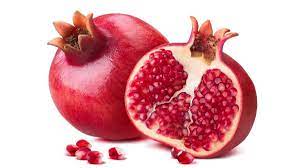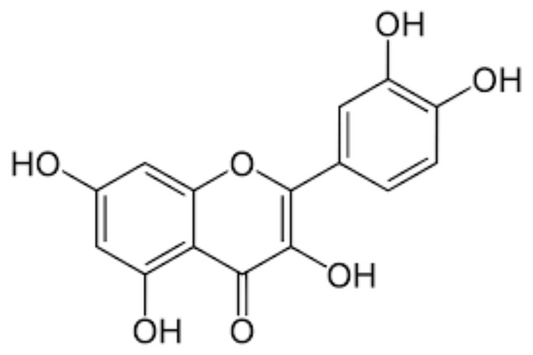Benefit Tips
- Regular intake of zinc reduced the risk of pneumonia in the elderly by 45% in a specific study.
- Immune System: Supplementing with zinc can reduce the duration of the common cold by up to 33%. This result varies based on dosage and the specific population studied.
- Acne and Skin Health: Oral zinc supplementation can reduce the severity of acne by up to 50% in certain populations.
- Age-related Diseases:Zinc can reduce the risk of age-related macular degeneration (AMD). In the Age-Related Eye Disease Study (AREDS), supplementation with zinc (along with antioxidants) reduced the risk of developing advanced AMD by about 25%.
- Mental Health: Zinc deficiency has been linked to mood disorders. In certain studies, zinc supplementation showed a significant reduction in depression symptoms, with one study indicating a 50% improvement in the depressed mood of participants.
- Childhood Growth: Zinc is essential for growth. Supplementation in zinc-deficient children can increase growth rates by up to 20%.
- Pregnancy and Childbirth: In certain developing countries, zinc supplementation during pregnancy resulted in a 14% reduction in preterm births.
- Diarrhea in Children: The World Health Organization recommends zinc supplementation for the treatment of acute diarrhea in children. Studies have shown that it can reduce the duration of diarrheal episodes by up to 25%.
- Male Fertility: Zinc plays a role in male fertility. Deficiency can lead to reduced sperm count. Supplementation in deficient men can increase sperm count by 74% in some studies.
- Bone Health: Zinc is crucial for bone health. Studies have shown that postmenopausal women with lower zinc intakes had a 10% lower bone mineral density than those with adequate zinc intake.
From Immune Support to Anti-Aging: Discovering the Many Benefits of Zinc
Zinc is an essential mineral that plays a vital role in maintaining overall health and wellness. It is a trace element that the body requires in small amounts, but it is crucial for numerous biological processes. Zinc is involved in gene expression, wound healing, and immune system functioning, among other things. As such, it has many potential health benefits, including the ability to slow down the aging process.
One of the most well-known benefits of zinc is its role in immune system functioning. Zinc is essential for the development and function of immune cells, including T-cells and B-cells. It is also necessary for the production of antibodies that fight off infection. A deficiency in zinc can impair immune system functioning and increase the risk of infections and diseases, including cancer.1
In addition to its immune-boosting properties, zinc is also important for wound healing.2 It plays a crucial role in the synthesis of collagen, a protein that forms the structure of skin, bones, and other tissues.3 Collagen is essential for wound healing, and a deficiency in zinc can delay the healing process. This is because zinc is necessary for the proliferation and differentiation of cells that are involved in tissue repair.4
In a study published in the Journal of Nutrition Research and Practice, scientists wanted to see if zinc can help make bones stronger. They did an experiment on cells called osteoblasts and added different amounts of zinc to see what happens. They found that even a small amount of zinc helped the cells grow better. The more zinc they added, the better the cells grew. They also saw that zinc helped the cells make two important things for bones: alkaline phosphatase and collagen. These are like the building blocks for bones. The cells made more and more of them as time went on. Overall, the scientists found that zinc can help make bones stronger by helping these special cells grow and make important building blocks.3
Zinc also has antioxidant properties, which means it helps to protect the body from damage caused by free radicals. Free radicals are unstable molecules that can cause damage to cells and DNA. This damage can contribute to the development of many chronic diseases, including cancer, heart disease, and Alzheimer's disease. Zinc helps to neutralize free radicals and prevent them from causing damage, which can slow down the aging process and reduce the risk of age-related diseases.5
Another important benefit of zinc is its ability to support healthy vision. Zinc is necessary for the functioning of enzymes that help to protect the eyes from damage caused by oxidative stress. It also plays a role in the synthesis of retinal, a form of vitamin A that is essential for vision. 6,7
Zinc may also play a role in brain health and cognitive function. It is involved in the formation and maintenance of synapses, the connections between nerve cells in the brain. Zinc deficiency has been linked to impaired learning and memory, and studies have shown that zinc supplements can improve cognitive function in older adults.8-10
For example, scientists studied the effects of zinc supplements on cognitive function in 387 healthy adults aged 55-87 years. The participants were divided into three groups who received either a placebo, 15mg or 30mg of zinc per day for 6 months. The study measured visual memory, working memory, attention, and reaction time using the Cambridge Automated Neuropsychological Test Battery. The results showed that younger adults performed better on all tests than older adults, and there was a beneficial effect of both 15mg and 30mg of zinc per day on spatial working memory after 3 months.8,10
In conclusion, zinc is an essential mineral that plays many important roles in maintaining health and wellness. It has immune-boosting properties, supports wound healing and vision health, and may improve cognitive function. Zinc also has antioxidant and anti-aging properties that can help to slow down the aging process and reduce the risk of age-related diseases.
References:
- Haase H, Rink L. Multiple impacts of zinc on immune function. Metallomics. 2014 Jul;6(7):1175-80.
- Lin PH, Sermersheim M, Li H, Lee PH, Steinberg SM, Ma J. Zinc in wound healing modulation. Nutrients. 2017 Dec 24;10(1):16.
- Seo HJ, Cho YE, Kim T, Shin HI, Kwun IS. Zinc may increase bone formation through stimulating cell proliferation, alkaline phosphatase activity and collagen synthesis in osteoblastic MC3T3-E1 cells. Nutrition research and practice. 2010 Oct 1;4(5):356-61.
- Mathew-Steiner SS, Roy S, Sen CK. Collagen in wound healing. Bioengineering. 2021 May 11;8(5):63.
- Prasad AS. Zinc: an antioxidant and anti-inflammatory agent: role of zinc in degenerative disorders of aging. Journal of Trace Elements in Medicine and Biology. 2014 Oct 1;28(4):364-71.
- Van Leeuwen R, Boekhoorn S, Vingerling JR, Witteman JC, Klaver CC, Hofman A, de Jong PT. Dietary intake of antioxidants and risk of age-related macular degeneration. Jama. 2005 Dec 28;294(24):3101-7.
- Tan JS, Wang JJ, Flood V, Rochtchina E, Smith W, Mitchell P. Dietary antioxidants and the long-term incidence of age-related macular degeneration: the Blue Mountains Eye Study. Ophthalmology. 2008 Feb 1;115(2):334-41.
- Maylor EA, Simpson EE, Secker DL, Meunier N, Andriollo-Sanchez M, Polito A, Stewart-Knox B, McConville C, O'Connor JM, Coudray C. Effects of zinc supplementation on cognitive function in healthy middle-aged and older adults: the ZENITH study. British Journal of Nutrition. 2006 Oct;96(4):752-60.
- Tahmasebi Boroujeni S, Naghdi N, Shahbazi M, Farrokhi A, Bagherzadeh F, Kazemnejad A, Javadian M. The effect of severe zinc deficiency and zinc supplement on spatial learning and memory. Biological trace element research. 2009 Jul;130:48-61.
- Andriollo-Sanchez M, Polito A, Stewart-Knox B, McConville C, O'Connor JM, Coudray C. Effects of zinc supplementation on cognitive function in healthy middle-aged and older adults: the ZENITH study. British Journal of Nutrition. 2006 Oct;96(4):752-60.




